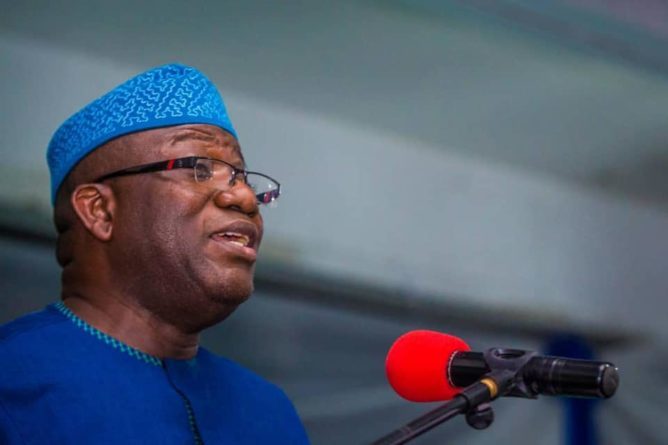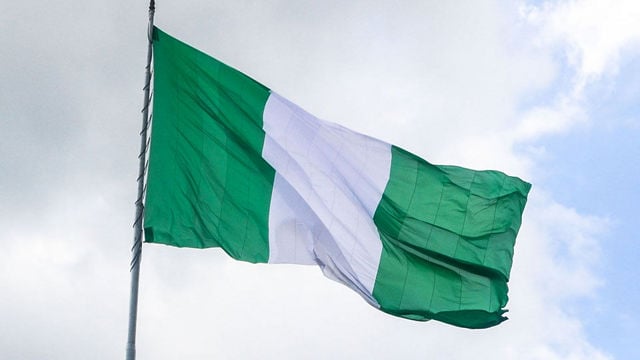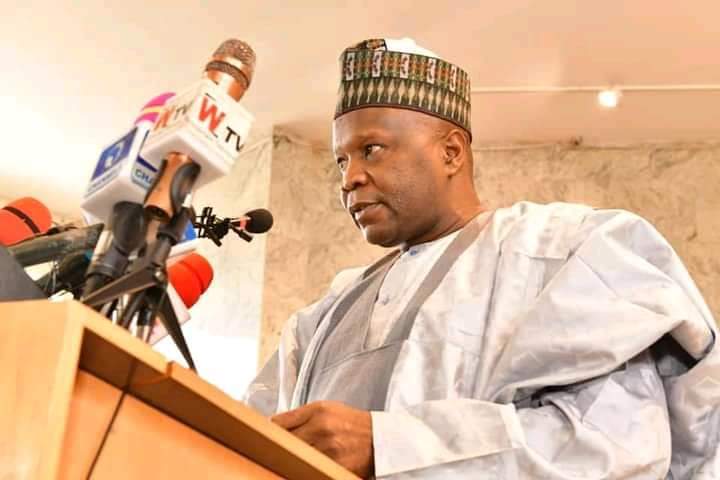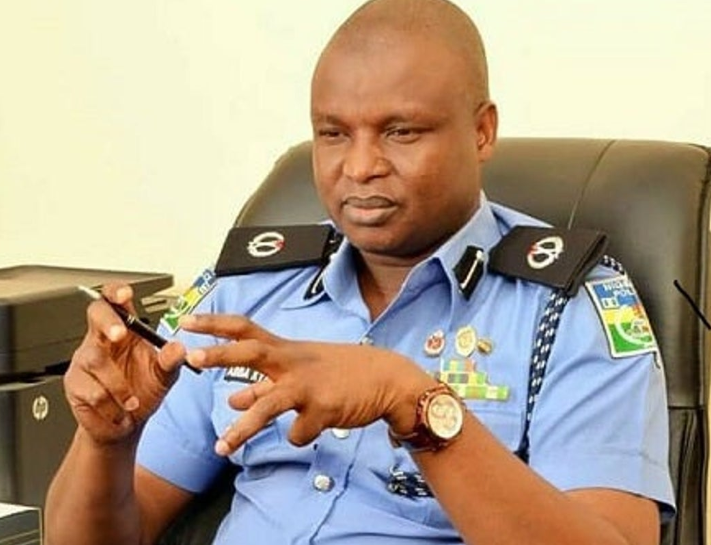BY CHINEMELU NWOKIKE
The most important kind of freedom is to be what you really are. You trade in your reality for a role. You trade in your sense for an act. You give up your ability to feel, and in exchange, put on a mask. There can’t be any large-scale revolution until there’s a personal revolution, on an individual level. It’s got to happen inside first. ~Jim Morrison.
Back in July 2000, Karl Maier published his weighty scrutiny of Nigeria, This House Has Fallen, which chronicled the inept leadership, corruption, rising sectarian tensions that collectively predicted doom for the world’s most populous black nation.
In 2005, a report by the US National Intelligence Council (NIC) entitled: “Mapping Sub-Saharan Africa’s Future.”, warned Nigerians to prepare for a potential apocalypse on or before the year 2020. There have equally been other scathing assessments and predictions of disintegration by both Nigerians and foreigners alike. Yet here we are, trudging on with the burden of a bleeding economy and widespread insecurity. Nigeria is always on the brink. Ours is a country that is perpetually rooted on the precipice without tipping over.
Advertisement
Last weekend the world literally stood still as the Taliban marched into the presidential palace in Kabul. As I perused the Nigerian social media space, I discovered that the images streaming out of Afghanistan seem to have jolted many back to sobriety. The pages of the usually vocal agitators were populated by philosophical posts about how Nigeria is drifting towards a similar crisis. I figured that they would have imagined hanging on to the wing of an aircraft in Murtala Mohammed airport trying to escape a surging mob of militants approaching from Ajao Estate. Isn’t that supposed to be some scene in a Hollywood movie? No, it isn’t. We witnessed it live in Kabul.
Afghanistan isn’t the only example in recent memory. We have seen grisly details in Syria, Libya, Somalia, Iraq, and recently in South Africa. And if these places are miles away, didn’t we have a little taste of anarchy in the October 2020 #EndSARS protest that was eventually hijacked by hoodlums?
But we forget easily. I dare say that we even undeservedly feel entitled. That is why we have both the ignorant and enlightened calling for actions that will destabilize our motherland. It gets more tiresome considering that quite a handful of our countrymen stoking the conflagration are those in the diaspora who supposedly should know better.
Advertisement
I remember meeting an Afghan teenager in Germany back in 2002. He was among a group of fresh refugees herded to the nightclub by an official to facilitate social integration. As we got talking, I realized that despite his agonizing tale of destruction he still missed home. He complained that the orange juice he had been drinking was nothing close to what he is used to.
We have millions of his age group in Nigeria. At about 42%, our youth population ranks among the top 20 in the world. But what should naturally be a promising demographic appears to be a ticking time bomb for us. These youths are mostly jobless with little hope for the future. They watch western movies and see what functional societies look like. But here our leaders bask in nauseating opulence while the populace suffers. This is even as all the negative indices like inflation, poverty, unemployment rates continue to soar. It is frustrating and depressing. And it explains why many of them gravitate towards the Kanus and Igbohos who promise them a new El Dorado.
But Nigeria remains our home. We have no other and we will definitely not go the way of Afghanistan. To avoid this, however, requires our collective resolve. We must teach the youth to be wary of the populist pathway. They must be told that it is often laden with cheers and panegyrics that they will find too tempting to resist. Especially in times of despair when it becomes all too easy to latch on to flowery catchphrases and cosmetic soundbites that disparage the voice of reason.
Yes, critical thinking should persevere. The discerning must ask intelligent questions; Will the promises of our modern-day agitators solve the myriad challenges facing us? Or will it lead to smaller but even worse conjectures than what we already have? What does history teach us about similar movements? Let us rewind a bit.
Advertisement
Many of us grew up believing in revolutions. I had great admiration for the popular 20th-century revolutionaries like Robespierre, Castro, Kaunda, and Sankara. So enchanted was I in the 90s, particularly during the SAP era, that I had this longing for something like a Marxist revolution in Nigeria. It didn’t happen. As I studied further, some of the fascinations began to fizzle out. I realized that the results of popular revolts often did not meet the expectations of the masses.
For instance, the tripartite motto of liberté, égalité, fraternité which inspired both the French and Bolshevik revolutions weren’t exactly what the masses got after the old systems were dethroned. In France, the subsequent reign of terror unleashed by Robespierre ostensibly to secure the Republic was in reality another way to strengthen his grip on power. The democratic ideals voiced in public podiums were easily discarded as countless riots ensued. A chaotic situation that only abated after Robespierre was sent to the guillotine.
In the Soviet Union, what promised to be the ideal socialist state turned out to be a mirage. Members of the politburo reveled in the opulence of French chalets. They were chauffeured around in expensive limousines filled with exotic wines while the average Russian managed Lada and cheap vodka.
It is the same for many African revolutionaries who also embraced Marxism. The Kaundas and Mugabes et al would go on to become sit-tight rulers who suppressed every opposition. Their families and cronies were serially accused of corruption while a majority of their supporters struggled to feed. It would appear that Marxism was only helpful in dethroning the colonialists as the ‘freedom fighters’ that replaced them ultimately turned out to be worse despots.
Advertisement
Then there was the Arab Spring. Did the fall of Ben Ali, Gaddafi, Mubarak, and Saleh make the Arab world a better place? I doubt it. The situation in Libya for example makes most Africans kick themselves. Then coming back home we had “Occupy Nigeria” in 2012. But today we are still subsiding fuel under an administration populated by those who led that ‘occupation’ of the country.
Most of my examples are homogeneous societies with one or two unifying characteristics that are requisite for successful revolutions. Yet the decades that happened in days (apologies to Lenin) could be likened to “the more things changed the more they remained the same”. How much more Nigeria of 200 million people with over 250 ethnic groups?
Advertisement
Successive Nigerian governments face similar but unending problems of insecurity, corruption, unemployment, and the rest. Yet, we continue traipsing our democratic journey albeit with minimal progress. And even if you say that we‘ve made no progress, the fact that we have not fulfilled the countless doomsday predictions counts as progress for many.
I think it’s about time we start giving Nigeria the respect it deserves. Let’s stop dwelling on all the things that are not working and start doing one thing that will work. We also need to shred those dreams of a revolution or disintegration because I kid you not, any forceful attempt at these will likely lead to a deadlier conflict than what we had before. I mean one that may consume the West African sub-region.
Advertisement
So even if we don’t have a nation yet, we cannot say that we don’t have a country. The only way this country will break up is through the agreement of at least two of the majority ethnic group, and of course with the backing of the west. I don’t see that happening, at least not yet.
Thus let us build on what we already have rather than wishing upon the stars. Because really and truly, nothing suggests that Sowore will be more democratic than Buhari or that a new Republic named Biafra will better the lives of Igbos. That is not however to deny the obvious flaws in our skewed federation. I have always maintained that Buhari’s palpable nepotism has further widened our fault lines. But I have little doubt that Nigeria will outlive Buhari. I have also written that his administration should sound the requiem for the remnants of the old regime. It should mark the end of an era.
Advertisement
It is not by magic that we have remained one. It is not that we‘ve had the best leadership or the most responsible citizenry. It is simply down to two reasons; our unflinching resilience and the conflicting sociocultural hegemonies among the tripartite pillars, power blocs that usually find a balance in the twilight of each administration. But we can do better. Our destiny as a nation cannot be eternally immersed in four-year election cycles. New paradigms must be evolved in our political order.
We have progressed in electoral reforms such that elections are becoming organic, albeit at the regional level. The PIA is now in effect and we have also seen marginal gains in the fight against insecurity. No matter how little, these are positives to improve on.
We have the capacity, we have the brains. The likes of Amaechi, Fashola, Obi, and El Rufai can combine with the Ezekwesilis, Moghalus, Zulums, and Durotoyes. Together these vibrant and visionary leaders possess the balanced mix of political experience and intellect required to lead the country in a digital era. They are the ones that will usher in greater citizens’ participation and youth inclusion in decision-making. They will move the economy from the anachronistic cryptocurrency ban to the promotion of AI.
I know that some will be saying we have been there before with former President Goodluck Jonathan. The truth, however, is that Jonathan was thrust upon us by providence and as such nobody knew what was coming. But this time it will be a collective decision birthed from a new patriotic consciousness to end recycled leadership. The insidious reality facing us now is navigating a gradual and peaceful transition of power to the new breed. That is the revolution we need now.
Chinemelu Nwokike is a media consultant who writes on sociopolitical topics. He tweets @cmonionline
Views expressed by contributors are strictly personal and not of TheCable.
Add a comment






